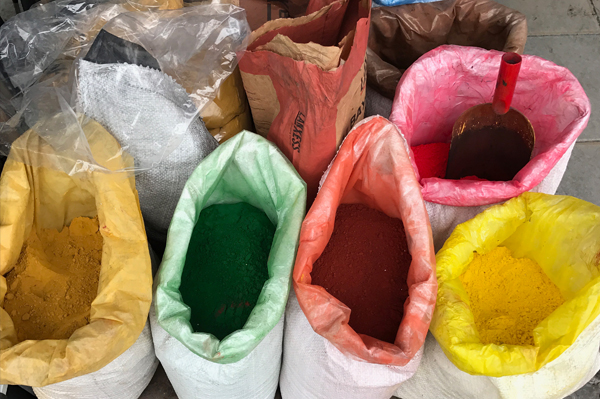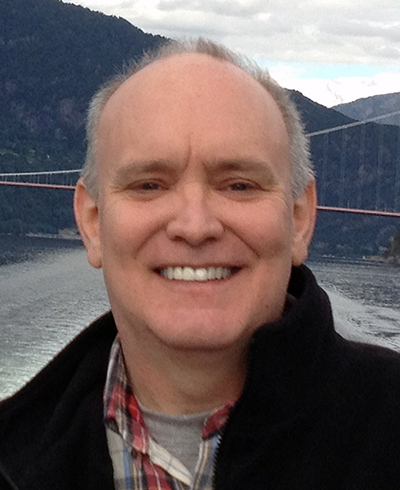Interdisciplinary lecture series Transculturality: Composition and Ethnomusicology
On Wednesday 8 November 2017 the next date of the interdisciplinary lecture series Transculturality_mdw featuring the subject of "Composition and Ethnomusicology" is to take place at the mdw.
 Photo: Composition, artistic practice and scientific research ©Johannes Kretz
Photo: Composition, artistic practice and scientific research ©Johannes Kretz
Lecture
Transculturality, Hybridity and Music: From Aesthetics to Politics and Back Again
This lecture will consider some aspects of the mutual constitution of aesthetics and politics in so-called transcultural musical expressions. Using Mikhail Bakhtin's theorization of hybridity as a starting point, the lecture will explore the contrast between what can be called “organic transculturality” in music – the more-or-less spontaneous emergence of hybrid musical forms within situations of cultural contact – and “intentional transculturality” – the conscious, deliberate bringing together of musical expressions from different cultures or social groups.
While organic transculturality can be said to characterize the historical evolution of all cultures (since no culture is entirely isolated), intentional transculturality can be defined as artistic practice that explicitly aestheticizes cultural mixing, drawing attention to its juxtaposition of musical materials from different cultural sources and social groups. Such deliberate practices of cultural mixing are inherently political, since there is always a power differential between the social groups that are bearers of the different cultural traditions that are brought together.
Despite this inherently political nature, the practices of transcultural music may promote a naive, celebratory, depoliticized “happy hybridity” approach to cultural mixing that drains artistic expression of its critical potential and which provides cover for the appropriation of the cultural resources of other social groups in the name of so-called universal art. The lecture will argue that intentional transcultural musical expression is most successful when based on respectful cooperation between individuals from the cultures and social groups involved. The lecture will be illustrated with musical examples from Turkey and other places around the globe.

Lecture: Thomas Solomon
Thomas Solomon is Professor in the Grieg Academy-Department of Music at the University of Bergen, Norway. He has previously taught ethnomusicology and popular music studies at New York University, University of Minnesota and Istanbul Technical University.
He has carried out ethnographic research on music, place, and indigeneity in highland Bolivia, and on place and identity in Turkish rap music and hip-hop youth culture in Istanbul; he has also published on various theoretical topics in ethnomusicology and popular music studies. His publications include articles in the journals Ethnomusicology, Popular Music, European Journal of Cultural Studies, and Yearbook for Traditional Music, as well as numerous chapters in edited volumes. He is also the editor of Music and Identity in Norway and Beyond: Essays Commemorating Edvard Grieg the Humanist (2011) and African Musics in Context: Institutions, Culture, Identity (2015), and co-editor of Ethnomusicology in East Africa: Perspectives from Uganda and Beyond (2012).
Photo: private
Artistic contribution
Johannes Kretz, composer und computer musician, with students of the Department of Composition, Electroacoustics and Tonmeister Education
Confusing Inspiration 2
A project of the department 1 for Composition, Electroacoustics and Tonmeister Education in cooperation with the department 21 for Folk Music Research and Ethnomusicology
The interdisciplinary project "Confusing Inspiration" aims at connecting composition, artistic practices and scientific research. Composition and ethnomusicology can benefit from each other especially within the framework of a research-based and practice-oriented setting. A more globalised view offers new perspectives of integrating approaches of contemporary composition and electroacoustics with current ethnomusicological approaches. This leads to an innovative and open work style between the disciplines and to a development of new teaching and research methods.
A central question is how artistic work can gain more social and political relevance. Students were taught the empirical research methods of ethnomusicology and were asked to practically implement them in a scientific-artistic project. The fieldwork – participatory observation – was the starting point of artistic works, which will be presented with an explanation of the work process.
Team: Johannes Kretz, Wei-Ya Lin, Hande Sağlam
Commentary and moderation: Nora Bammer (mdw)
Interdisciplinary lecture series Transculturality:
Composition and Ethnomusicology
Wednesday, 8 November 2017, 5.00 – 8.00 pm
mdw – University of Music and Performing Arts Vienna
Fanny Hensel Hall
Anton-von-Webern-Platz 1
1030 Vienna
